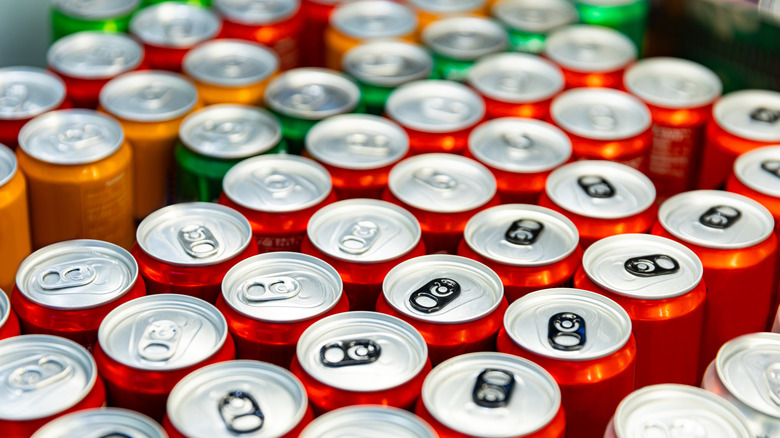Why Costco's Kirkland Signature Cola Ultimately Failed
Store brands are having a moment. Aldi has started upping their own brand game, and Trader Joe's products garner a cult-like following from fans. But customers can thank Costco for starting the trend. The retailer made a smart business decision by becoming the first to prioritize high-quality store brand products through its in-house Kirkland brand.
Kirkland products go through a rigorous development process. According to Costco CEO Ron Vachris, products won't hit the shelves unless they have an advantage over the leading national brand — not only in terms of price but also quality. The retailer's commitment to quality has paid off. Costco is one of the most trusted brands in America.
But not everything is a success. While Costco invests significant time and money into product development and market research, some products are simply flops. That's why Costco pulled its Kirkland brand mayonnaise before it even hit the shelves — and why the retailer stopped selling Kirkland Signature Cola circa 2015.
"Just like any branded item, any private label lives and dies based on how it performs," Richard Galanti, Costco's Chief Financial Officer, told CNN. According to Galanti, Kirkland's cola just couldn't compete with giants like Pepsi and Coke. "No one was looking for a third major cola out there," he explained.
According to Reddit, there was another reason why Kirkland's cola failed. "It wasn't that great," one commenter wrote on r/Costco. "Did marketing for my building at the time and would take them to on-sites. People did not like them."
Kirkland cola wasn't very good
Some Redditors claimed that Kirkland cola was a decent alternative to Coke or Pepsi. "It wasn't Coke, but it was the closest of any of the knockoffs," one commenter explained. But most maintained that the soda couldn't compete with major brands: "I have never found a generic better than Coke," wrote another.
One Redditor noted that Costco might not have been able to access coca. While Coke phased out actual cocaine around the turn of the 20th century, coca extract is still a key ingredient. Coca-Cola sources the extract from Stepan Company, the only U.S. company allowed to import coca leaves. The company separates the extract from the cocaine; the extract goes to Coca-Cola and the cocaine is used for medical purposes.
Costco manages to keep Kirkland's prices low by negotiating with suppliers. Since Stepan Company has a monopoly on coca leaves, Costco would've had a trickier time with negotiations. Admittedly, that's all speculation: You can still produce a popular cola without coca. Pepsi is coca-free and performs on par with Coke in blind taste tests. But customers are deeply loyal to their favorite brands, and brand loyalty can affect perception of taste. Even if Kirkland's cola was on par with — or better than — Pepsi or Coke, the brand was already at a disadvantage. Don't feel too bad for Costco, though. Kirkland doesn't need to enter the cola wars to win: The brand is worth more than either Pepsi or Coke.

